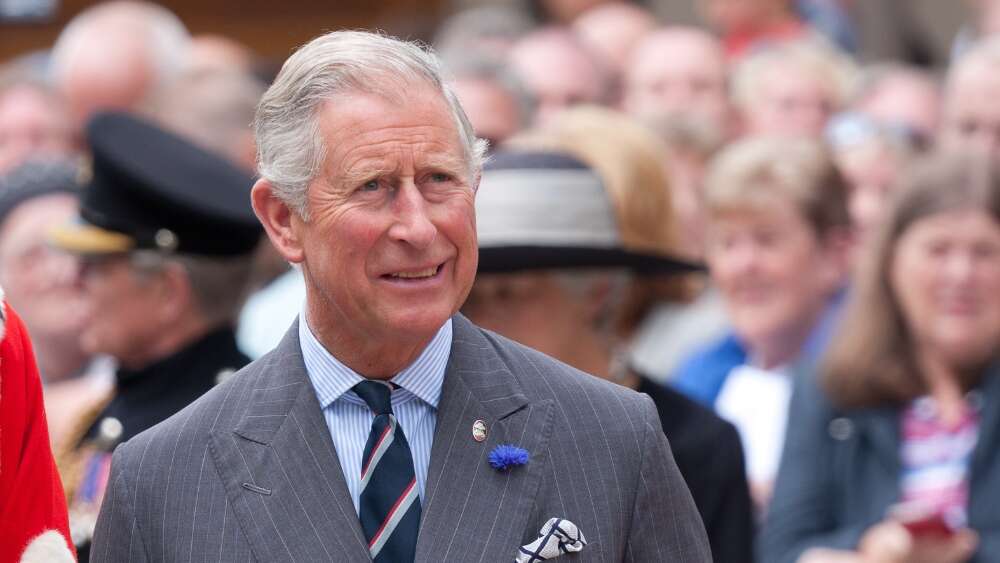For many years, King Charles has sought to live out the ancient motto of the Princes of Wales, ‘Ich dien’, the German reads: ‘I serve’. At Saturday’s coronation, for the first time King Charles himself will lead a prayer, in which he asks for God’s blessing on this leadership of service: ‘God of compassion and mercy, whose Son was sent not to be served but to serve’, King Charles will pray: ‘give grace that I may find in thy service perfect freedom, and in that freedom knowledge of thy truth’.
It is in serving others that true leadership is shown forth, Jesus had taught his disciples at the table of the Last Supper, just as it is by serving others that the fundamental values of God’s kingdom are shown forth (Luke 22.24-30). Only when we serve one another may we find perfect freedom. In his words and by his actions, the new King has shown that such service is based on our willingness to discover the truth about ourselves and our past and, in that light, to work to set right those things that need resolving and forgiving, so that we may achieve reconciliation with one another (and, I would add as a Christian, not only with one another, but also with God.)
Leaders who uphold and live out these values share, with God, in shaping the world to conform to God’s vision. When we turn to the prophecy of Isaiah we read that God envisages our world to be a place where suffering and pain, distress and weeping are no more; where former enemies come together in peace (Isaiah 65:17-25). Where none hurt or destroy any more, because people have made the values of God’s kingdom their own. In choosing, for the first time at a coronation, to give voice to his own ambition for his leadership in the words of a coronation prayer, King Charles has set a strong signal of what kind of a king he hopes to be.
During his time as Prince of Wales, we have come to know his consistent challenge to work urgently for the kind of ecological transformation for our world spoken of in Isaiah’s prophecy. We have come to know his passion for safeguarding our planet and ensuring its long-term sustainability. A king who, it is said, shakes the branches of trees to wish them a long life would, I suspect, understand like none other, what it means when in Isaiah 65:22 God speaks of his vision for his people to be ‘like the days of a tree’. Humans are intrinsically dependent on and connected to the created order: both growth and setback are marked in the ‘rings’ of our lives. Like trees, we are to be people who draw on our roots, our values, to find strength. The strength to act and to change our world for good.

King Charles has consistently warned that ‘time is rapidly running out’, to address the loss of habitats, biodiversity, and to mitigate a climate emergency, and that an important part of ‘restoring harmony with nature’ is undoubtedly found in learning from and working with our First Nations elders: ‘We simply must learn practical lessons from traditional knowledge, through deep connections to land and water, about how we should treat our planet’, he reflected with First Nations Leaders in Canada last year.
Another passion King Charles has given voice to is working for reconciliation. At Saturday’s coronation he will pray that he might be a blessing to all God’s people so that ‘together we may discover the ways of gentleness and be led into the way of peace’. King Charles knows full well that in order ‘to unlock the power of our common future, we must acknowledge the wrongs that have shaped our past’, as he put it in his presidential address to the Commonwealth Heads of Government in Kigali last June. Then he expressed his confidence that in a post-colonial age true reconciliation could begin only when ‘Indigenous and non-Indigenous peoples reflect honestly and openly on one of the darkest aspects of history’.
The new King has not yet publicly spoken about his hopes for a First Nations Voice to Parliament in Australia. But his upholding Canada and New Zealand as models for reconciliation ‘for our Commonwealth family’ in Kigali last year, suggests that he is very open to the proposal: after all, both countries already have established their own representative Voices for First Peoples.
One of the ways in which reparation may be made for the past sins of colonialism is by entering into formal treaty agreements—as is the case in the treaties made between the Crown and First Nations People in Canada and New Zealand. There is no doubt whatsoever that King Charles is unwavering in his support for such treaties between First Peoples and the Crown. In New Zealand in 2019, he formally pledged to uphold the Treaty of Waitangi: ‘I humbly reaffirm my commitment, and that of my children and grandchildren to this bond between us, and to ensuring that it endures for future generations’.
While constitutional recognition and formal treaties are important ways forward on the journey to reconciliation, they can only ever address part of the injustices and bloodshed of the past, the King acknowledged at Waitangi in 2019: ‘The Treaty settlements do not, and cannot, right all the wrongs of the past. They can only go so far in easing the pain that has been felt by so many people’.
True reconciliation can only be found when all experience the perfect freedom that comes from knowing and facing up to the truth, King Charles knows. In an address to leaders of Canadian First Peoples last year, he highlighted that ‘the vital process of reconciliation in this country is not a one-off-act but an ongoing commitment to healing, respect and understanding’. When we embark on that journey, we may discover ‘together the ways of peace’.
Reconciliation is an ongoing effort and costly process. As our First Nations Canon Uncle Glenn Loughrey said: ‘Reconciliation is not relationship- or nation-building, but dealing with the hard stuff’. It means ‘coming to terms with the darker and more difficult parts of our past: acknowledging, reconciling and striving to do better’, King Charles said in Canada last year.
A Coronation marks the opportunity for a new beginning for the Commonwealth of Nations. As a Christian, I pray that Almighty God will hear and answer the prayer King Charles will make at his coronation: May he be a leader who seeks to serve others. May he use his considerable personal wealth to be a blessing to others by championing people experiencing hardship and need. May he use his influence to encourage his governments to ‘deal with the hard stuff’ we face in addressing the climate crisis and promoting the crucial work of reconciliation. May he draw on the values of his faith and follow the example of the servant King, Jesus Christ. Above all may his leadership reflect God’s compassion and mercy. That would indeed be a ‘blessing to all God’s children, of every faith and conviction’.
The Very Revd Dr Andreas Loewe is Dean of Melbourne and oversees St Paul’s Cathedral, the Cathedral of the Diocese of Melbourne and Anglican Province of Victoria.
Email This Story
Why not send this to a friend?


